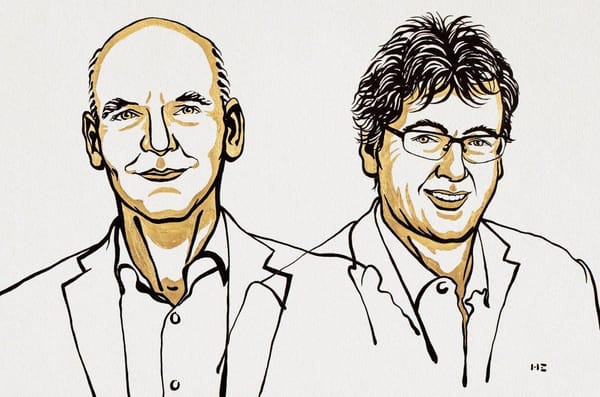The 2021 Nobel Prize in Physics
Felix Science covers the achievements that won scientists the Nobel Prize this year.

This year, the Nobel Prize in Physics is split in two; one half is awarded to Syukuro Manabe and Klaus Hasselmann for “[laying] the foundation of our knowledge of the Earth’s climate and how humanity influences it”, and the other half is awarded to Giorgio Parisi for his “revolutionary contributions to the theory of disordered materials and random processes”.
The recipients of this year’s prize are united by the fact that their work has enabled the modelling of complex systems. Complex systems consist of many smaller parts, which interact with each other in seemingly random ways. They are chaotic, meaning that a small change in initial conditions can have a huge impact on the final state. The climate is just one example of such a system. Climate change has dominated world affairs in the past few years, and the Nobel Committee have clearly recognised that, and affirmed its significance, in their awarding of the Prize.
Syukoro Manabe is a meteorologist, who, during the 1960s and 70s, developed three-dimensional computer models of the atmosphere and the ocean, coupling the two together for the first time with his colleagues at the Geophysical Fluid Dynamics Laboratory in the USA. He and the teams he has worked with have used these models to investigate the impact of changing greenhouse gas concentrations on climate. They demonstrated how increasing CO2 emissions have increased surface temperatures, quantifying the effects. His work has been hugely important in understanding the effect of human behaviour on climate change, both past, present, and future.
Klaus Hasselmann is an oceanographer who, around ten years after Manabe’s initial work, used computer models to explain why weather can vary so unpredictably, while climate models maintain reliability. Outside of this, his research was used to prove that human-related CO2 emissions are the primary cause of the increased temperatures observed around the world.
Giorgio Parisi is a theoretical physicist, who was awarded the prize for his work on complex systems and “the discovery of the interplay of disorder and fluctuations in physical systems from atomic to planetary scales.” His work has implications for a vast range of fields; neuroscience, biology, machine learning, finance and (perhaps most notably, given the other two Physics Prize recipients) climate modelling all benefit from his research.







